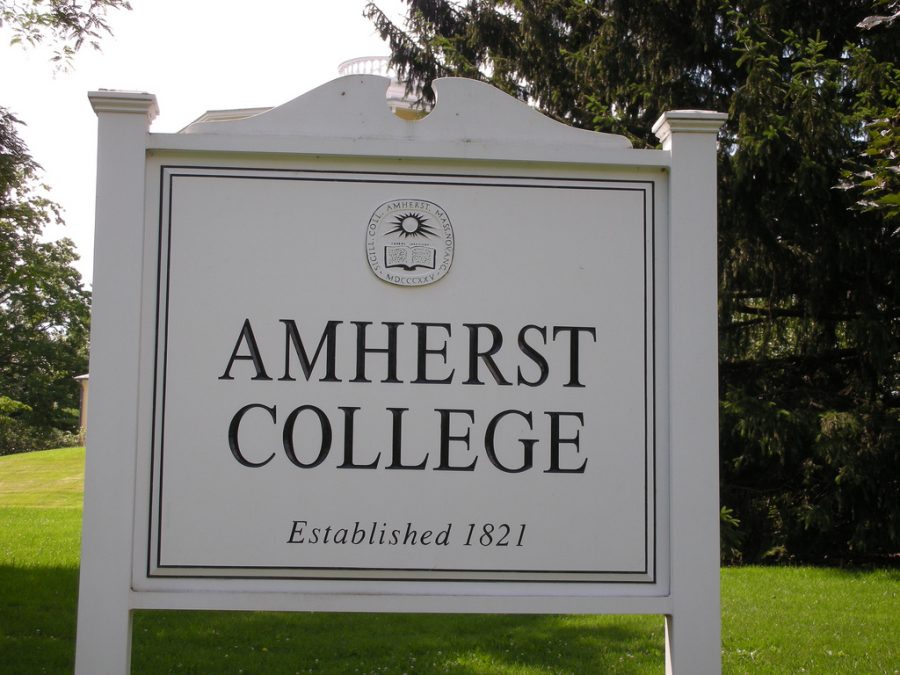Roughly 30 people attended a vigil and information session on the murdered and missing indigenous women of the United States and Canada. The event was hosted by the Indigenous and Native Citizens Association of Amherst College on Sunday afternoon in the Powerhouse.
Sarah Montoya, a co-president of INCA who is a member of the Navajo Nation, said that the group decided to hold the vigil after Raymond Cormier, the man charged with second-degree murder of 15-year-old Tina Fontaine, was found not guilty by a Canadian jury two weeks ago. Fontaine was a member of the Sagkeeng First Nation.
“I think it is very easy when we see the statistics in a newspaper to forget who Tina Fontaine was, and who all of these people were, and that they should not have died, and that they should not have gone missing,” said Montoya.
Fontaine’s body was found in the Red River of Winnipeg, Canada wrapped in a duvet cover and weighed down with rocks in August 2014. Fontaine, whose father was murdered in Oct. 2011, had left the Sagkeeng First Nation for Winnipeg in an attempt to find her mother, who had previously been uninvolved in her life. In Winnipeg, Cormier provided Fontaine with a prescription drug called gabapentin.
Montoya said that she was continually disgusted by media portrayals of missing and murdered indigenous women, which she said do not treat the victims respectfully but instead allege drug use by them as the reason for their death or disappearance.
In Fontaine’s case, Montoya said the same thing had occurred as media organizations focused on a toxicologist’s report that THC, a chemical compound in cannabis, was found in her body.
“One person’s actions do not cause an epidemic like this,” Montoya said. “As I read through these reports alleging that Tina did something wrong, I was furious.”
Montoya said that on the day of Fontaine’s death she interacted with police officers and workers in a hospital. Montoya also described reading in disbelief descriptions from Cormier’s trial that Fontaine could have wrapped the duvet cover around herself and weighed it down with rocks.
Montoya also talked about Misty Upham, a member of the Blackfeet Nation and Hollywood actress whose body was found with a broken skull and ribs in 2014. Montoya said Upham had been raped by a Weinstein executive at the 2013 Golden Globes.
“Yet in this new era of Me Too, the only one who talked about her was Ellen Page,” Montoya said.
Montoya also cited a report by the Government Accountability Office in 2010, which found that U.S. attorneys declined to prosecute 52 percent of violent crimes in Indian Country—a term used for self-governing Native communities. Additionally, she said that Native Americans were 2.5 times likelier to experience violence than other races.
These statistics were cited in Savanna’s Act, a proposed congressional legislation which would direct the attorney general to “review, revise and develop” law enforcement standards “appropriate to address missing and murdered Indians.” The Act was named after Savanna LaFontaine-Grey of the Spirit Lake and Turtle Mountain Chippewa Nations, who was eight months pregnant when she was murdered by her neighbor in August 2017.
Tracie Michelle, a chair of the Indigenous Smith College Students and Allies, provided context about the rates of violence against Native women.
“About 97 percent of perpetrators are non-Native, and they come onto reservations and can’t be convicted,” said Michelle, a junior American studies major at Smith College.
Michelle explained how throughout American history Native American reservations have been legally designated as domestic dependent nations. A result of this designation has been that Native nations have been unable to prosecute non-Native people.
Michelle said that the reauthorization of the Violence Against Women Act in 2013 gave some nations provisions to prosecute non-Native people. These provisions do not apply to all nations, and the Navajo nation is currently working to do so, according to Michelle.
Michelle mentioned organizations which are working to end the epidemic which leads to the high number of murdered and missing Indigenous women in North America, such as the Coalition to Stop Violence Against Native Women and the First Nation’s Women’s Alliance.
INCA offered envelopes and paper to attendees and encouraged them to write letters to representatives encouraging the passage of Savanna’s Act, the SURVIVE Act—which would “secure urgent resources vital to Indian victims of crime”—and the Justice for Native Survivors of Sexual Violence Act—which would “revise provisions regarding tribal jurisdiction over crimes of domestic violence.”
Allyah Pimentel Landestoy, a freshman at Amherst College, said she had had only heard a little about missing and murdered indigenous women before the event, and wrote a letter to her representative after it ended.
“I wrote about how disappointed I am and how silent the government’s been and how slow they’ve been to act,” she said.
Gabriela Smith-Rosario, an INCA member who is part Cherokee, said she and Montoya had talked about the issue prior to the event.
“I think one of the things that stood out to me is that despite the fact that 97 percent of violence against Indigenous women is committed by non-Indigenous individuals, three percent [committed by Indigenous individuals] is probably more than would be expected,” Smith-Rosario, a senior math and music double major, said.
Tai Christie, a freshman at Amherst College, said they knew some of the statistics before the event but had not known about the difficulties in prosecuting non-Native perpetrators.
“Most of the names mentioned today I hadn’t heard about,” Christie said. “Which just goes to show that even if you’re looking for it, it’s hard to find information about it.”
Stuart Foster can be reached at [email protected] or followed on Twitter @Stuart_C_Foster.



















